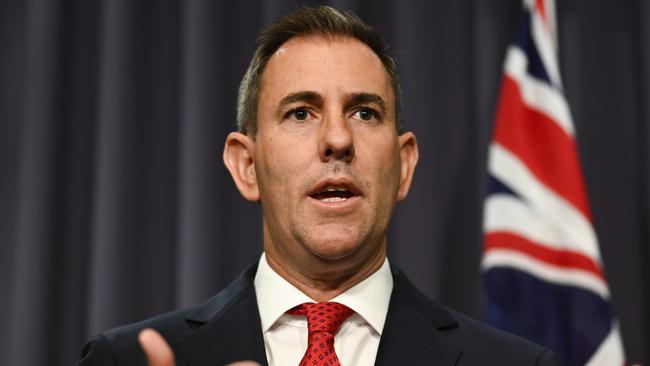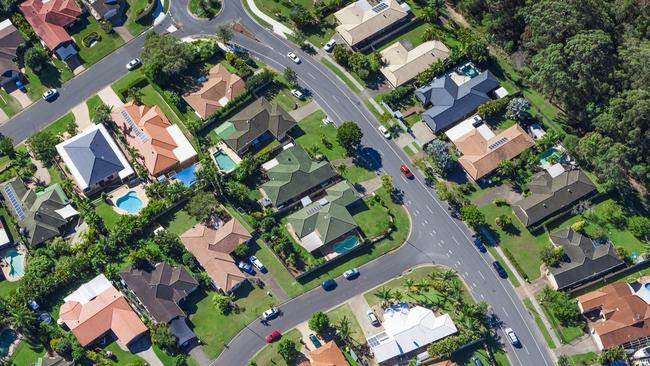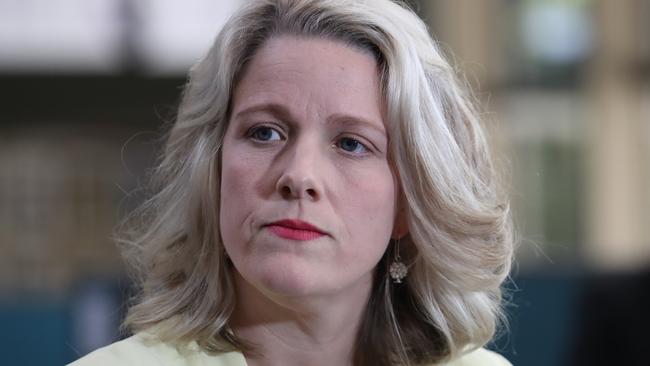‘Treated fairly’: Big 4 banks’ surprise HECS debt move
Treasurer Jim Chalmers said new “commonsense clarifications” will help more Aussies buy a home.
Banking
Don't miss out on the headlines from Banking. Followed categories will be added to My News.
Big banks have agreed to review the impact of university debts for degrees on home loan approvals following a personal intervention by the Treasurer Jim Chalmers.
Graduates have long complained that their university debt is impacting their ability to borrow and how much they can borrow when trying to enter the housing market.
But after a request from the Albanese Government, financial regulators say they will update their guidance to make it easier for Australians with a HELP debt to responsibly take out a mortgage and buy a home.
Treasurer Jim Chalmers revealed on Tuesday night that he spoke personally to APRA Chair John Lonsdale in November 2024 and ASIC Chair Joseph Longo in February 2025 about the issue before holding talks with the CEOs of the nation’s major banks this week.
“We’re tackling this housing challenge from every possible angle,’’ the Treasurer said.
“These are commonsense clarifications that will help more Australians into a home.
“People with a HELP debt should be treated fairly when they want to buy a house and we’re working with the regulators to make sure they are.”

MORE: Home loan trap taking years to escape
The Australian Banking Association had indicated that one reason for the problems graduates were experiencing was the interpretation of lending regulations and guidance by APRA and ASIC.
But Dr Chalmers said on Tuesday that the big banks had resolved to reconsider the problem and take action.
The intervention comes amid predictions the RBA will consider a rate cut at its February 18 meeting that could see house prices rise by up to 20 per cent in Sydney and Melbourne.
How does HECS-HELP debt affect home loans?
Debt including student debt and credit card debt can affect the borrowing power of Australians seeking a mortgage.
HECS-HELP debt, which is only payable based on getting to an income threshold, is taken into consideration by lenders.
According to digital mortgage broker Finspo, there are concerns some financial institutions are treating student debt like an unsecured loan, placing it in the same category as credit card or buy-now-pay-later debt.

MORE: Huge prediction for Aussie house prices
Dr Gareth Bryant, a political economist from the University of Sydney, told SBS News recently that treating student debt like other forms of debt “doesn’t really make sense”.
“HECS does reduce your ability to make loan repayments definitely because as you earn more, you’re paying more HECS debt, you have less disposable income to be able to service your mortgage,” he said.
“So, HECS definitely should affect your lending capacity on that basis but it’s not like you have to repay your debt no matter what your circumstances.”
In fact, students only need to repay the money based on income thresholds and don’t have to make repayments if unemployed or below the income threshold.
Commonsense measure
Housing Minister Clare O’Neil said Labor was determined to help make it easier for first home buyers to get into a home of their own by ensuring that people aren’t overly impacted by student loans.
“This is a common sense measure that will make a material difference to first home buyers, giving them more borrowing power to get into their own home, sooner,’’ she said.
“For a generation of Australians, the prospect of home ownership feels too far away, and being a renter has never felt more insecure. Labor’s working to secure your future by making it easier to buy, better to rent and with our big housing build.”

Minister for Education, Jason Clare said the changes will build on recent cuts to student debt.
“Labor’s promise to cut student debt by 20 per cent will make it easier to buy a home and so will this,’’ he said.
“This will make it easier for people just out of TAFE, just out of uni, just getting started.”
Albanese Government slashes student debt
Cash-strapped millennials and millions of other Australians had their student debt slashed by $3 billion under a cost of living measure announced last year by Prime Minister Anthony Albanese.
The Government backdated this relief to all HELP, VET Student Loan, Australian Apprenticeship Support Loan and other student support loan accounts that existed on 1 June last year.

An individual with an average HELP debt of $26,500 will see around $1200 wiped from their outstanding HELP loans this year, pending the passage of legislation.
But students with huge debts of $100,000 who have studied expensive degrees including medicine, law or even studied multiple degrees could have $5000 wiped.
“This will wipe out around $3 billion in student debt from more than three million Australians,” Education Minister Jason Clare said.
“We are doing this, and going further. We will backdate this reform to last year. This will wipe out what happened last year and make sure it never happens again.”

Treasurer asks regulator to unlock construction of more units
The Treasurer also revealed he had asked APRA to update and clarify its regulatory guidance to help unlock the construction of more units.
The Treasurer has requested that APRA update and clarify its guidance, to enable banks to provide more finance for construction.
This would remove a barrier to the construction of more residential housing, ensuring more projects get off the ground.
“By unlocking more finance from the banks we’ll see more housing projects get off the ground more quickly,’’ the Treasurer said.
“This is all part of our comprehensive Homes for Australia plan which includes the biggest home building program of any government in history.”
Originally published as ‘Treated fairly’: Big 4 banks’ surprise HECS debt move





